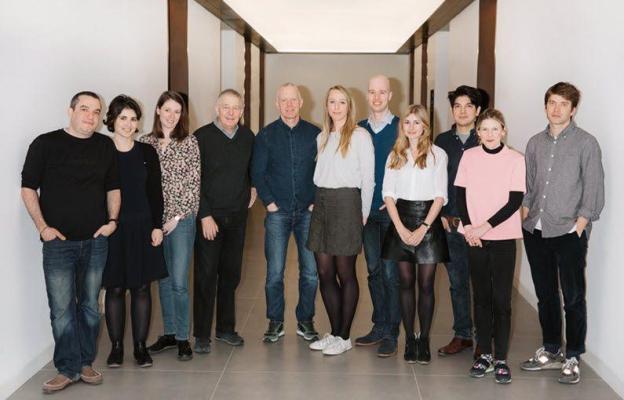LocalGlobe becomes Phoenix Court Group, hits $500M first close for new funds, adds splash of impact – TechCrunch
Saul Klein is a busy man. As co-founder, with his father Robin, of LocalGlobe, one of Europe’s oldest VCs, he has overseen a wide range of initiatives – among others, the two are avid investors and philanthropists in the Somers area, the headquarters of LocalGlobe. Town, London – as well as the more conventional business of venture investing in startups.
But, while the LocalGlobe brand name and fund will remain, the new umbrella brand for all of the Kleins’ businesses will now be “Phoenix Court Group” (for the purposes of this article, I’ll call it PCG). The group also reveals how its four new funds will work, as well as how it will devote 10% of its profits to a charitable foundation.
The company has now explained how it will have $500 million at “first close” to deploy across its funds: LocalGlobe (early stage), Latitude (early “growth” stage) and two brand new investment vehicles, Solar and Basecamp.
A good 10% of Phoenix Court Group’s profits will go to its Phoenix Court Works foundation to help local groups in Somers Town.
Klein is also pushing the idea that PCG’s King’s Cross, London location puts it at the heart of a European region he dubs “the next Palo Alto” – which we’ll talk about later.
So first to fund structures. TechCrunch scoured the marketing buff to come up with these definitions of PCG funds:
• LocalGlobe (seed to Series A)
• Latitude (Series B and later)
• Solar (Series C and above, as well as investing in listed tech stocks/public markets)
• Basecamp (LP funds to invest in other smaller VCs, angels and solo generalists)
With this range of fund vehicles, this will make PCG a “lifestage” technology investor, able to invest from the early stages of start-up, through to the final stage and into the public markets. It’s also now an LP in other funds (via Basecamp), especially emerging markets like Africa and Latin America.
But zoom out for a moment, and Basecamp is actually the retro-adjusted moniker PCG gives to the several Kleins-backed initiatives, such as Seedcamp in 2007, business builder Zinc.vc in 2017, and the platform of the music industry Platoon, among others. Basecamp also partners with the diversity-focused Newton Venture program, which LocalGlobe co-founded with London Business School. Pheonic Court Works has underwritten 60 scholarships for this program.
PCG also now claims that the region is less than four hours by train from its base in Kings Cross and St Pancras (which includes Paris, Amsterdam, Brussels, northern UK cities (Manchester, Leeds, Liverpool, Newcastle), Bristol, Oxford and Cambridge) is home to over 40 million citizens, 7 of the world’s top 30 universities and contains a large number of European unicorns. Presumably, he calls this region of Europe, a “New Palo Alto” – although the marketing schpeel is too laborious. Moreover, PCG hardly has a monopoly on this region – whatever you call it – given that any other London VC a tube ride from Kings Cross has access to the exact same ecosystem.
However, Saul Klein, co-founder of Phoenix Court Group, said in a statement: “Despite being the third-best producer of high-growth private companies in the world, this geography is still underserved by investors, especially at the breakout and scaling stages. Not only is there an acute financing gap here at the scale-up stage, but less than 20% of capital invested at this stage is domestic, so when businesses in our region are acquired or move to British public markets, pensioners and savers are missing out while their Canadian, Australian and Singaporean counterparts profit.
PCG will also support Phoenix Court Works, his foundation which supports organizations in the north London borough of Somers Town, as well as Camden more broadly, and is funded by 10% of Phoenix Court Group’s management company profits and 2% carrying all funds.
Dealroom’s recently released VC Prominence rankings showed largely US-based Accel out of 24 unicorns and Sequoia out of 20, while LocalGlobe invested mostly in Europe and produced 18 seed-stage unicorns. LocalGlobe unicorns include At-Bay, Hailo, Motorway, Travelperk and Zego.
Speaking to me on a call, Klein elaborated on the plethora of these financing vehicles: “If you look at companies that get really big, they don’t just get really big in private markets, they get really big in public markets.
“We’re all thinking of Sequoia having this fund that can invest in private and public companies, which took 15 years to build. So our view is that if you have the ability to get into companies at the stage seed, why wouldn’t you want to continue investing in breakouts, like with Latitude, three to four years before these companies are able to go public? We’ve had eight IPOs in the last year, why wouldn’t you want to invest again? It’s Solar. If these are big companies that still have a long way to go, keep holding on. Right? We now have full life stage funding for the businesses.”
But what Klein finally seems to be aiming for, even with the rather forced stuff about “the New Palo Alto”, is that he wants to do VC. differently how it has been perceived in the past. After all, there just aren’t many other VCs (at least that I’m aware of lately) doing this wide range of hard-core investments. and take an interest in their territory, and put 10% of the profits and 2% of the carry in a philanthropic activity. It’s clear that PCG would like to build a “new kind of Bay Area”, but this time with less “Tech Bros” and more “Tech Values”.


Comments are closed.